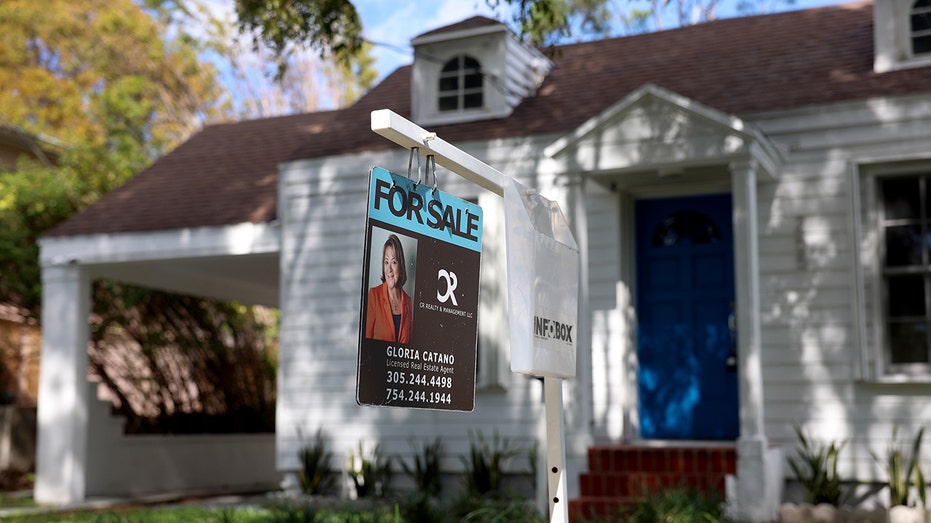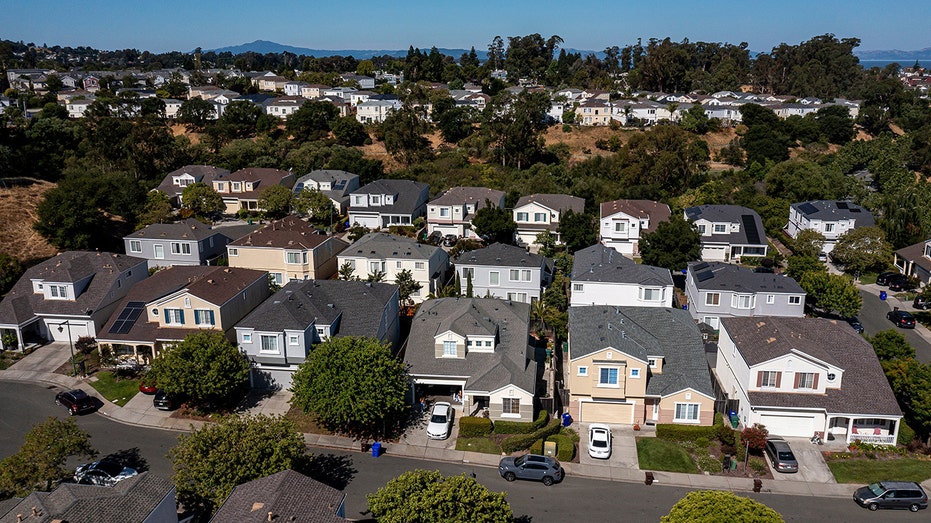The Bahnsen Group founder and CIO David Bahnsen surveys the real estate market as younger homebuyers struggle with the ongoing housing crisis.
The cost of buying a house has surged in recent years, as high mortgage rates and rising home prices put ownership out of reach for many Americans.
The problem is even worse for the millions living in key battleground states that could determine the outcome of the 2024 presidential election.
New findings from Redfin show the combination of steep mortgage rates and elevated home prices has pushed the median monthly housing payment for homebuyers in swing states to an all-time high of $2,161 – a 92% increase from the 2020 election.
Home prices in those states have also skyrocketed over the past four years, climbing nearly 40% to a record high of $316,063.
MORTGAGE CALCULATOR: SEE HOW MUCH HIGHER RATES COULD COST YOU
Redfin’s report is based on trends in seven swing states: Arizona, Nevada, Wisconsin, Michigan, Pennsylvania, Georgia and North Carolina.
A Coldwell Banker LLC sign is displayed outside of a house for sale in Las Vegas, Nevada, U.S., on Tuesday, Nov. 27, 2012. (Photographer: Jacob Kepler/Bloomberg via Getty Images / Getty Images)
“Voters in swing states care about housing affordability because soaring home prices and mortgage rates, along with a shortage of homes for sale, have made homeownership feel impossible for some Americans,” said Elijah De La Campa, a senior economist at Redfin.
The steep increase in prices and mortgage rates has made the median-priced home unaffordable to the typical swing-state resident, assuming that a household spends no more than 30% of their income on monthly housing costs.
A household earning the median swing-state income – roughly $79,155 – would have to spend 32.8% of their earnings in order to afford the typical home. By comparison, in 2020, that same household would have had to spend a much smaller share (about 21.8%) on the typical home.
WHY CAN’T YOU FIND A HOME FOR SALE?

A “for sale” sign is displayed in front of a home on Feb. 22, 2023, in Miami, Florida. (Photo by Joe Raedle/Getty Images / Getty Images)
There are a number of driving forces behind the affordability crisis.
Years of underbuilding fueled a shortage of homes in the country, a problem that was later exacerbated by the rapid rise in mortgage rates and expensive construction materials.
Higher mortgage rates over the past three years have also created a “golden handcuff” effect in the housing market. Sellers who locked in a record-low mortgage rate of 3% or less during the pandemic began have been reluctant to sell, limiting supply further and leaving few options for eager would-be buyers.
TRUMP’S ECONOMIC SCORECARD: WHERE HE STANDS ON TAX, TARIFFS AND MORE
Economists predict that mortgage rates will remain elevated for most of 2024 and that they will only begin to fall once the Federal Reserve starts cutting rates. Even then, rates are unlikely to return to the lows seen during the pandemic.
Mortgage buyer Freddie Mac said Thursday that the average rate on a 30-year loan this week fell to 6.77%. While that is down from a peak of 7.79% in the fall, it remains sharply higher than the pandemic-era lows of just 3%.

Homes in Hercules, California, on Aug. 16, 2023. (David Paul Morris/Bloomberg via Getty Images / Getty Images)
Newsfromrss.com
Available home supply remains down a stunning 34.3% from the typical amount before the COVID-19 pandemic began in early 2020, according to a separate report published by Realtor.com.
Most homeowners say they are nearly twice as willing to sell their home if their mortgage rate is 5% or higher, according to a Zillow survey. Currently, about 80% of mortgage holders have a rate below 5%.


